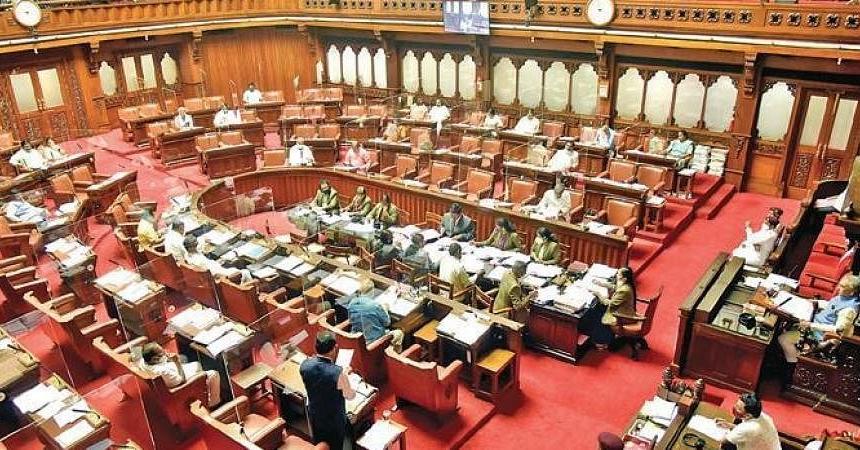Are you curious to know what is MLC in politics? You have come to the right place as I am going to tell you everything about MLC in politics in a very simple explanation. Without further discussion let’s begin to know what is MLC in politics?
In the realm of politics, where leadership, governance, and representation intersect, the term “MLC” holds significance as a crucial position that plays a pivotal role in legislative bodies. MLC, or Member of the Legislative Council, represents a key figure in certain legislative systems around the world, contributing to the decision-making, lawmaking, and governance of a region. In this blog, we delve into the world of MLCs in politics, uncovering their roles, responsibilities, and the impact they have on shaping the political landscape.
What Is MLC In Politics?
A Member of the Legislative Council (MLC) is a representative who holds a position in a legislative body, often referred to as a council, chamber, or assembly. This role is prominent in bicameral systems, where the legislative process involves two separate chambers: the lower house (often referred to as the lower house of representatives or assembly) and the upper house (often referred to as the legislative council or senate).
Roles And Responsibilities Of MLCs:
- Lawmaking: MLCs actively participate in the process of creating, amending, and passing laws. They debate proposed legislation, contribute to discussions, and vote on various bills.
- Representation: MLCs represent the interests, concerns, and needs of their constituents in the upper house of the legislature. They voice the opinions of the people they represent and advocate for policies that align with their region’s priorities.
- Oversight: MLCs engage in the oversight of the government’s actions and policies. They hold the government accountable by questioning officials, raising issues, and demanding transparency.
- Deliberation: MLCs engage in informed deliberation on matters that impact their region and the broader society. They provide diverse perspectives and contribute to the thorough examination of legislative proposals.
- Advocacy: MLCs often serve as advocates for specific causes, groups, or interests within their region. They champion issues that resonate with their constituents and work to advance those causes through legislation.
Types Of Legislative Councils:
- Elected MLCs: In some systems, MLCs are elected by the public in a direct election. They represent constituencies within a region and engage in democratic representation.
- Appointed MLCs: In certain systems, MLCs are appointed by various means, such as by the head of state, the government, or other designated authorities. They may bring expertise or specific perspectives to the legislative process.
Advantages And Challenges:
Advantages:
- Expertise: Appointed MLCs often bring specialized knowledge and expertise to the legislative process, contributing to informed decision-making.
- Stability: Appointed MLCs can provide a degree of stability and continuity in legislative bodies, even when there are changes in the lower house due to elections.
Challenges:
- Democratic Legitimacy: In systems with appointed MLCs, concerns about democratic legitimacy may arise if the public perceives the process as lacking transparency or fairness.
- Representation: Elected MLCs face the challenge of effectively representing diverse constituencies and balancing their interests and priorities.
Conclusion:
Members of the Legislative Council (MLCs) are essential figures in the political landscape, contributing to the lawmaking, representation, and governance of a region. Whether appointed or elected, MLCs play a crucial role in shaping policies, advocating for constituents, and fostering informed deliberation. Their efforts influence the direction of legislative decisions and contribute to the broader democratic process. As society evolves and priorities shift, MLCs remain central to ensuring that the voices of the people are heard and considered within the intricate fabric of political governance.
FAQ
Who Is MLC And How Is He Elected?
Members of a State Legislative Council (MLC) must be a citizen of India, at least 30 years old, mentally sound, not an insolvent, and must be an enrolled voter of the state. A member may not be a Member of Parliament and Member of the State Legislative Assembly at the same time.
What Are The Powers Of MLC?
To sum up, the Legislative Council has three main functions: enact laws, approve public expenditure and monitor the work of the government. The Legislative Council has limited powers under the Indian Constitution. It has no power to form or break governments.
What Do You Mean By MLC In India?
abbreviation for (in India and Australia) Member of the Legislative Council.
Who Elects MLC In Maharashtra?
The state elects members for a term of six years. 30 members are indirectly elected by the state legislators. 22 members are elected from Local Authorities Constituency, 7 from Graduates Constituency and 7 from Teachers Constituency.
I Have Covered All The Following Queries And Topics In The Above Article
What Is Meaning Of MLC In Politics
What Is An MLC In Politics
What Is MLC In Politics In Hindi
What Is MLC In Politics
What does MLC mean?
What is a member of the Legislative Council (MLC)?
